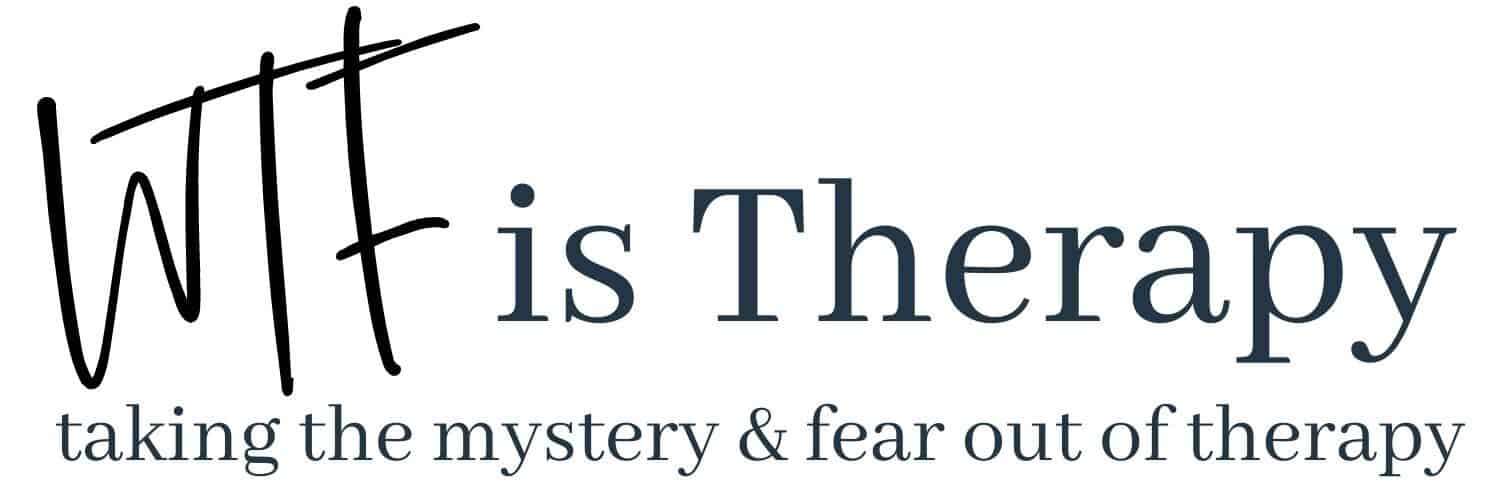
Everything you need to know about the paperwork you fill out for therapy.
This website is not here to offer psychiatric or therapy services or advice. If you have a psychiatric or medical emergency, please contact 911 or go to your nearest emergency room. This website is for educational purposes only. See my full legal disclosures here. All names and stories mentioned are fictional.
This site may include affiliate links for Amazon and other sites to relevant products. If you make a purchase using these links, the site receives a commission on the purchase.
The paperwork you’ll fill out for therapy is similar to what you fill out at the doctor’s office. Unfortunately, many people sign those forms without understanding them.
I’m going to go over some of the forms you may need to complete when you start therapy, as well as some forms you’ll sign along the way.
Intake Paperwork
Some therapists will have you fill out a packet of information about yourself. This includes your name, address, marital status, abuse history, medication, etc.
This seems to vary by therapist and some therapists will only inquire about the in-depth topics verbally in the intake session.
The benefit to this paperwork is that it allows the therapist to make sure all of the important topics are covered so he or she can complete a treatment plan.
It also helps you remember everything you wanted to talk about!
Release of Information
Do you have anyone that you want to have access to your therapy notes or other treatment information?
A release of information form is what you use to release your private medical information.
There are situations when a patient needs to provide some information to a doctor, psychiatrist, or another entity. You can specify what information you want that person to receive.
For example, you should probably make sure that your therapist and psychiatrist are able to discuss your treatment plan, medication, etc.
If you’re being forced by the court or another program to see a therapist, you may just want to release the dates of sessions attended. This allows them to see you attended therapy, but they can’t see what you talked about. If you’re attending by court order, you may be required to provide more information than this (such as a treatment plan).
Therapists often have people call asking for information about a client. We are unable to talk to them without the proper consent forms signed. So keep this in mind if you are chatting with the school therapist or another professional and tell that person to give us a call. Most doctors and therapists will have the release of information form on hand for you to sign.
HIPPA Consent Form
The Health Insurance Portability and Accountability Act of 1996 (HIPAA) gave everyone the right to privacy of their medical information- this includes mental health.
The HIPPA consent form informs you of the situations where your therapist might need to tell someone else your information.
These exceptions include:
- Disclosing information to your insurance company so your sessions will be covered.
- Disclosing information to the people you specify on a release of information form.
- Consultation with other professional colleagues for supervision purposes.
- By law, therapists must report abuse or neglect of a child or vulnerable adult.
In group therapy, you must also agree not to disclose information about other people in your group.
Client Rights
You may receive a list of your rights as a client. These are there to inform you what your rights are and you will review these with your therapist.
Treatment Plan
Most therapists will write up a treatment plan. Some therapists do this independently based on what you have stated your goals are during sessions.
Ideally, the therapist discusses all aspects of the treatment plan with you, you decide on some reasonable goals for therapy, then you both sign the document.
This is a great way to keep therapy sessions focused so you can achieve some goals.
It’s also an excellent way to “exit plan.” While some therapists don’t focus on this, I think it’s extremely important to realize that therapy doesn’t need to be a life long commitment. Often we see a therapist, work on some issues, then stop therapy when we feel better. Maybe a year or ten later, we come back to therapy for something else.
That’s okay! In fact- it’s perfect. I don’t think therapists will ever be out of a job, but we didn’t get into the profession for the money. Most therapists are genuinely happy when you leave therapy feeling better!
It’s important to get therapy when you need it, leave therapy when you’re ready, and come back when you need it again.
I hope this was helpful. Don’t forget to read: What to Expect at Your First Therapy Session
